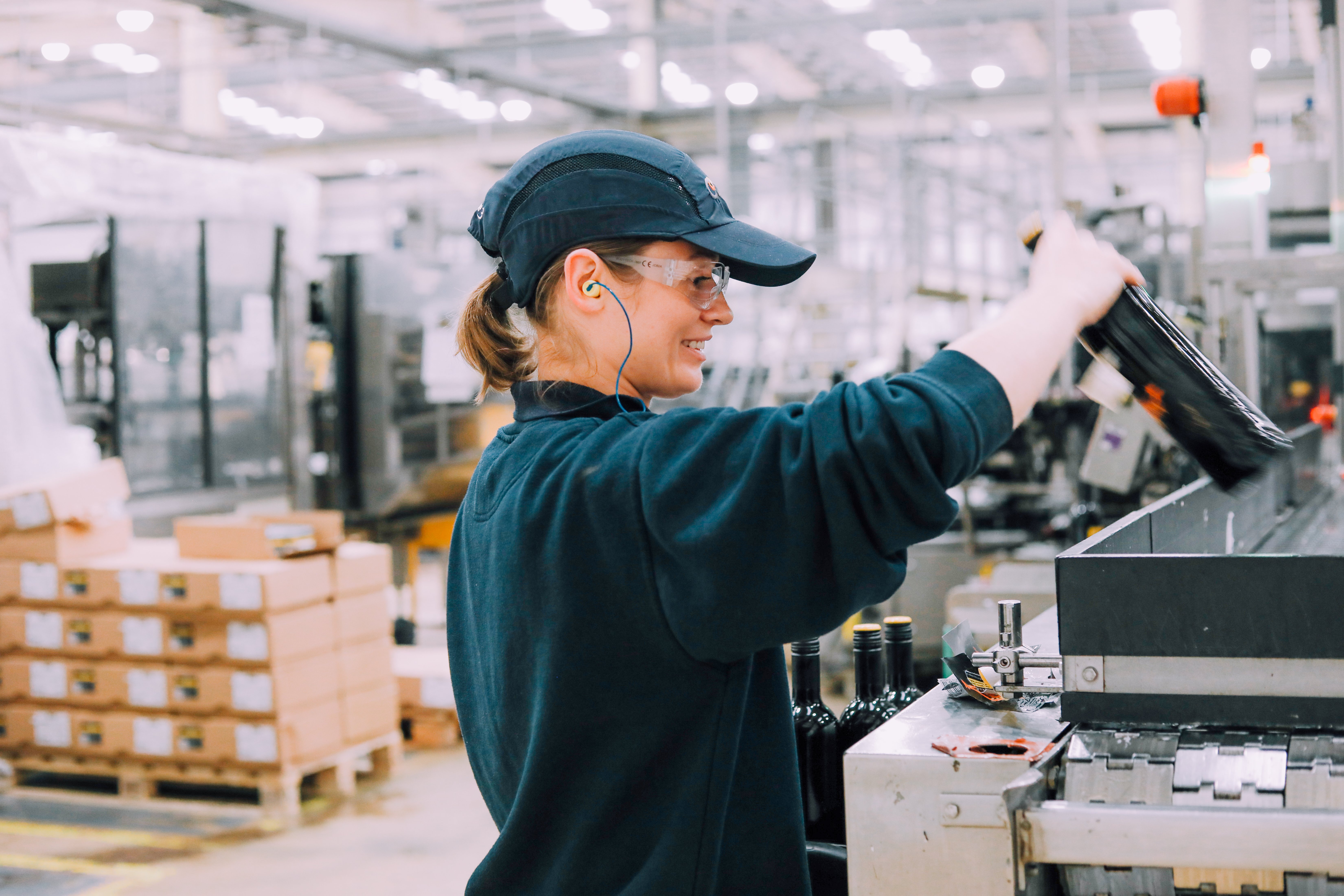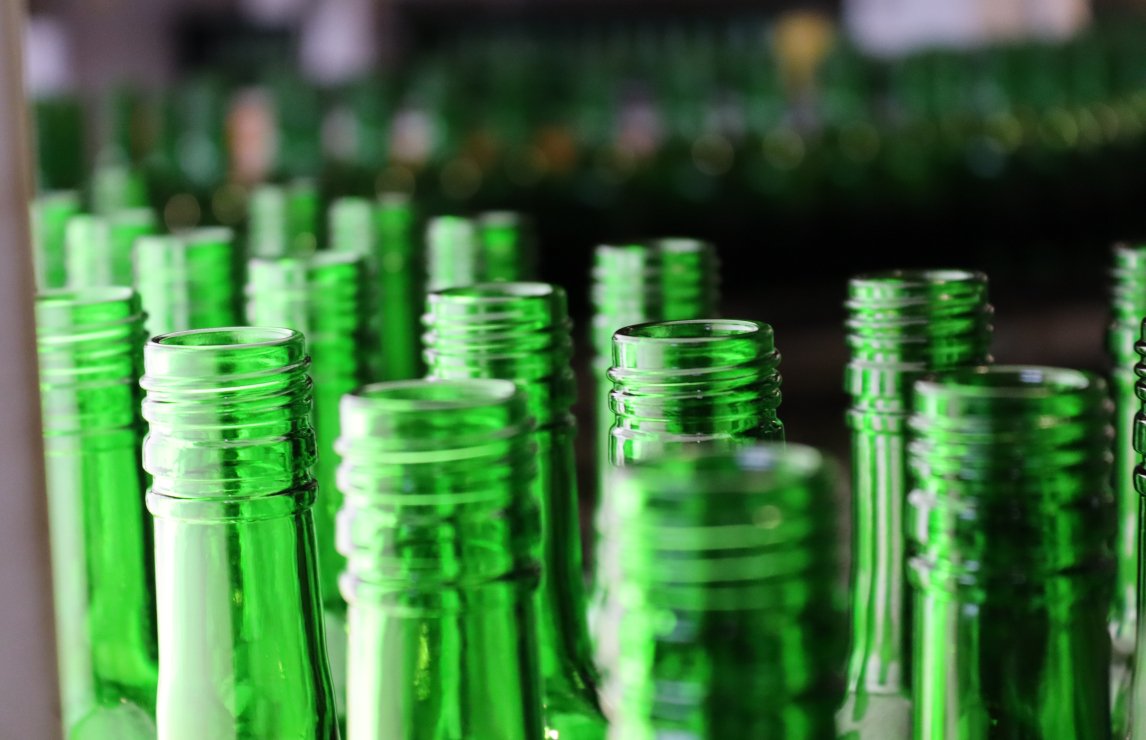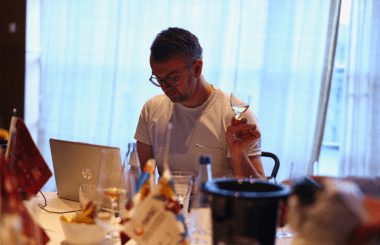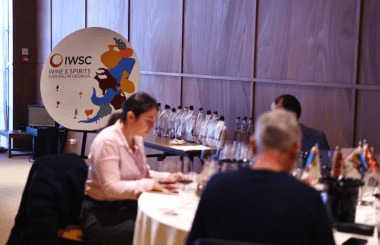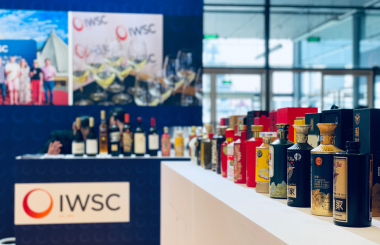More than a manufacturer: Encirc’s 360 approach to sustainability
Have you ever wondered what six million bottles look like? Or what it takes to make them? A trip to Encirc’s Cheshire plant will give you a pretty good idea, as that’s *approximately* the number of glass bottles they produce every single day. The size of the site is enough to stop you in your tracks, but it’s the cavernous manufacturing area that will take your breath away; blisteringly hot, deafeningly noisy and utterly relentless with the furnace and production lines running 24/7.
Manufacturing more than one third of the glass bottles used in the UK drinks industry demands huge amounts of raw materials and energy, as well as a sizable workforce, but Encirc is committed to making the highest quality products with as little impact on the environment as possible.

Thanks to a railhead at their Elton site, over half of Encirc’s raw materials are already shipped in by train, but they also plan to substantially increase the number of bottles leaving the plant by rail. With each train-load equivalent to taking 66 lorries off the road, and rail freight calculated to produce over 6 times less CO2 than road haulage, investing in their transport network will enable Encirc to vastly reduce both their own carbon footprint and that of their partners.
Of course Encirc are also committed to reducing the impact of the actual glass production, and while their furnaces are currently fuelled by natural gas - the most environmentally friendly fossil fuel - they have also run a small trial to make 100% recycled glass bottles in a furnace powered by waste biofuel, and have more recently teamed up with Diageo to create the world’s first net zero glass bottles at scale. Expected to be fully operational by 2027, the zero carbon electricity - or decarbonised - furnace will initially reduce carbon emissions by 90%. Long-term carbon capture technology is then planned to remove the remaining emissions by 2030, when the plant is expected to be producing up to 200 million bottles annually.
But that’s far from all Encirc has to offer. More than just a manufacturer, they also operate a fully integrated supply chain known as Encirc 360.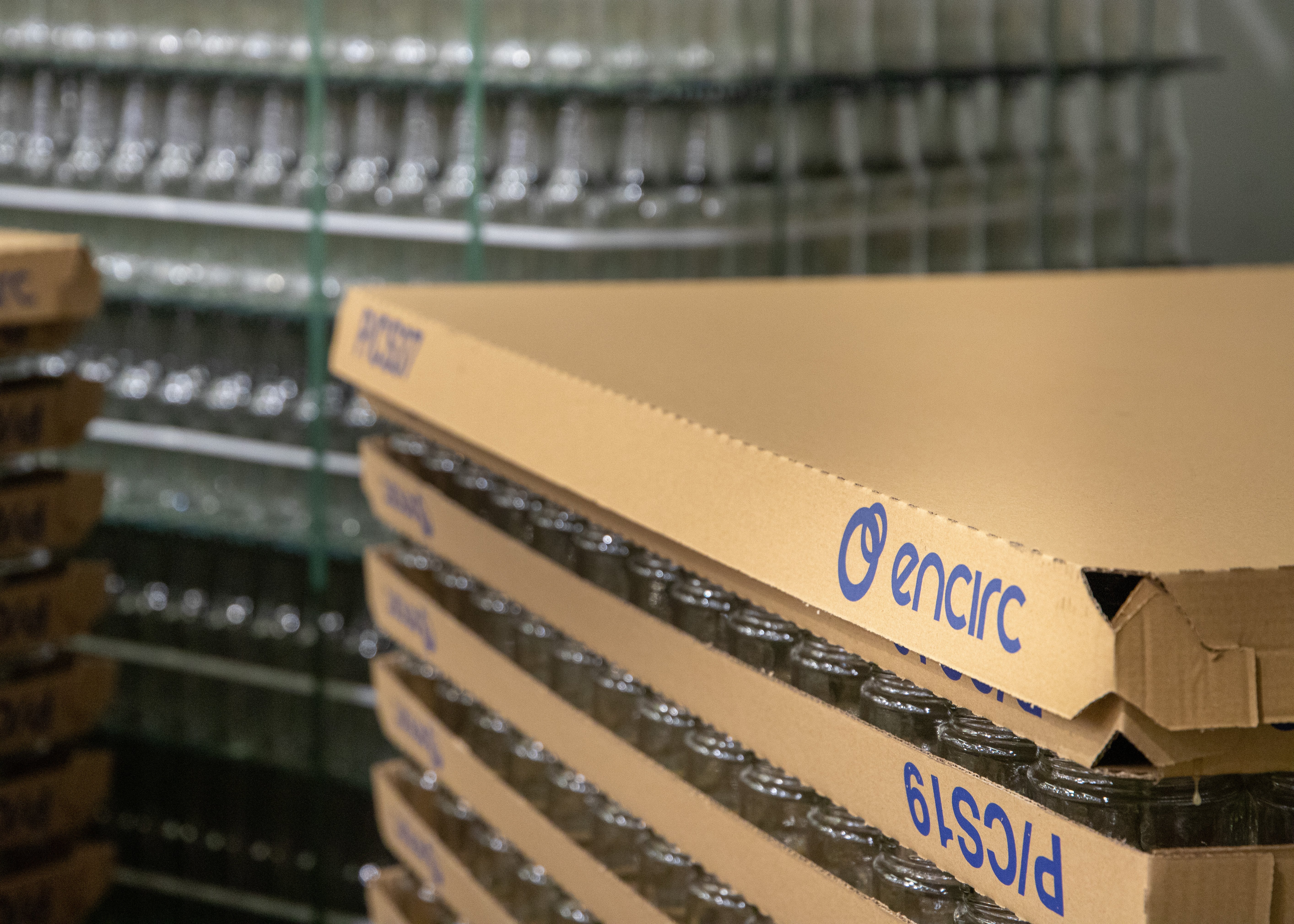
With a unique filling facility on their Cheshire site, Encirc can receive wine in huge 24,000-litre bulk shipments from overseas, for bottling, warehousing and distribution in the UK. Not only does disposing of glass bottles allow three times more liquid to be shipped in the same journey, but Encirc have also calculated that bulk shipment to the UK reduces the carbon footprint of an Australian wine’s transportation by over 40%, or a staggering 24,100 tonnes CO2e (carbon dioxide equivalent) per year.
Investment in cutting-edge technology, such as advanced filling facilities and automated production lines, enables Encirc to maximise their efficiency and, in turn, reduce their carbon footprint, but they are also looking beyond their impact on the planet to consider their smaller, but no less significant, impact on place and people.
With a second site in Derrylin, County Fermanagh, Encirc are an integral part of the Northern Ireland Keep Recycling Local organisation which is campaigning to stop the export of over 91,000 tonnes of recyclables around the globe. Replacing existing co-mingled collections with three-stream recycling (glass, paper/card and other) will, they argue, also reduce the need to import ‘clean’ recyclables and, in turn, create local jobs and bolster the Northern Irish economy as well as benefiting the environment.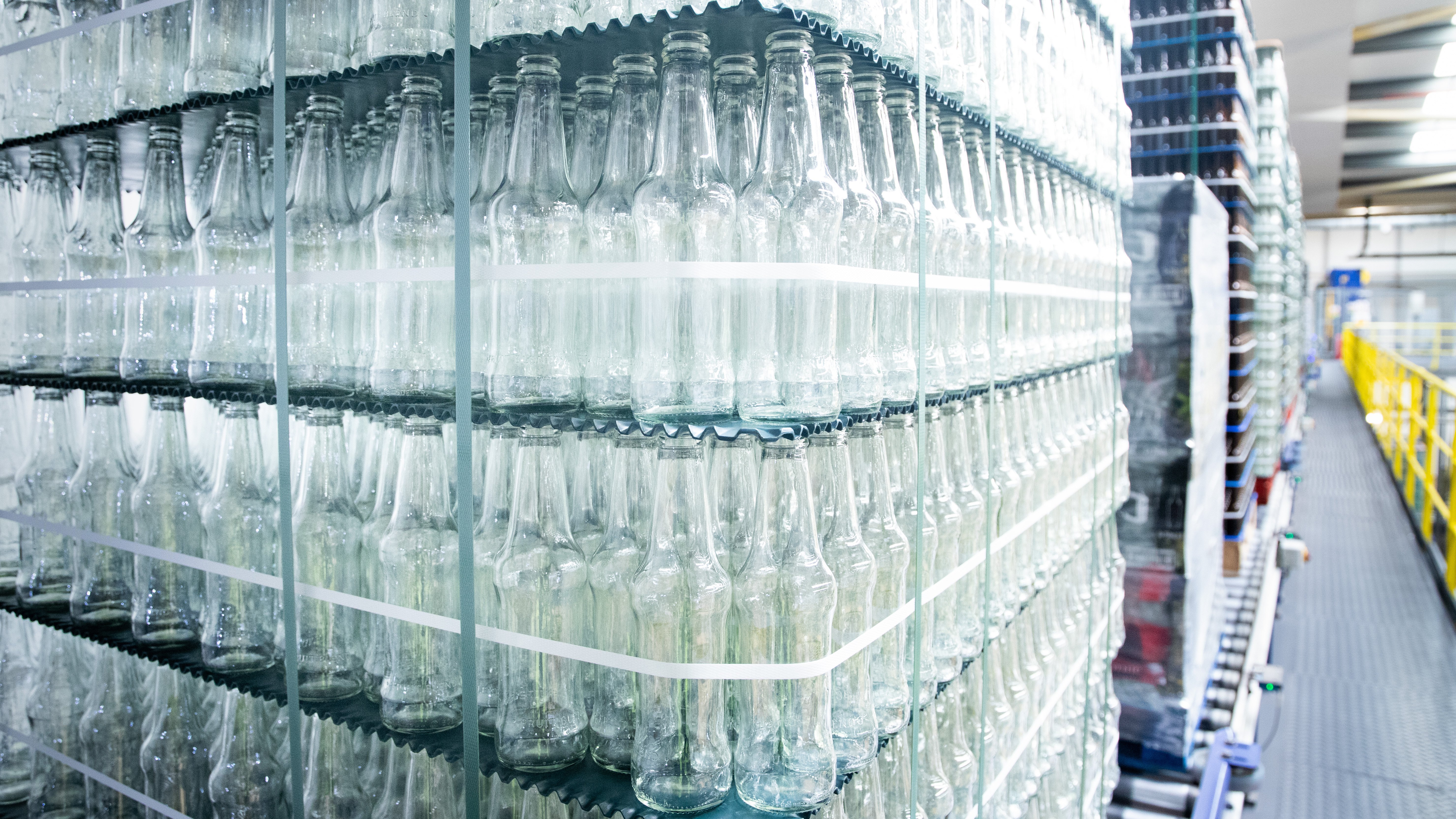
In addition to campaigning, Encirc have taken a hands-on approach to improving their local area by launching a biodiversity plan with the Ulster Wildlife foundation, and forming a committee to collaborate with local community organisations. In particular, Encirc has supported nearby schools to protect local wildlife and grow flowers for use around their factory, and vegetables which are then sold to raise school funds or donated to local food banks. In recognition of this Encirc was awarded the platinum level in the Business in the Community Northern Ireland (BITCNI) Business and Biodiversity Charter.
Even closer to home, Encirc also continues to invest in its own workforce. With shifts working throughout the day and night, both sites have a free-to-use 24hr gym in addition to - at the Elton site - an occupational health suite and prayer and mindfulness room. They also recently introduced a 5-crew system with a reduction in working hours from 42 to an average of 39 a week - but fundamentally while maintaining the same wage - to allow staff longer rest breaks, a better work/life balance and also to enable training opportunities to be fully utilised.
This focus on human sustainability - alongside investment in technology, which in turn removes people from dangerous work and enables them to be upskilled - undoubtedly aids staff retention, making the business itself more sustainable and therefore able to pursue its environmental commitments to its place and our planet. That truly is 360 thinking.